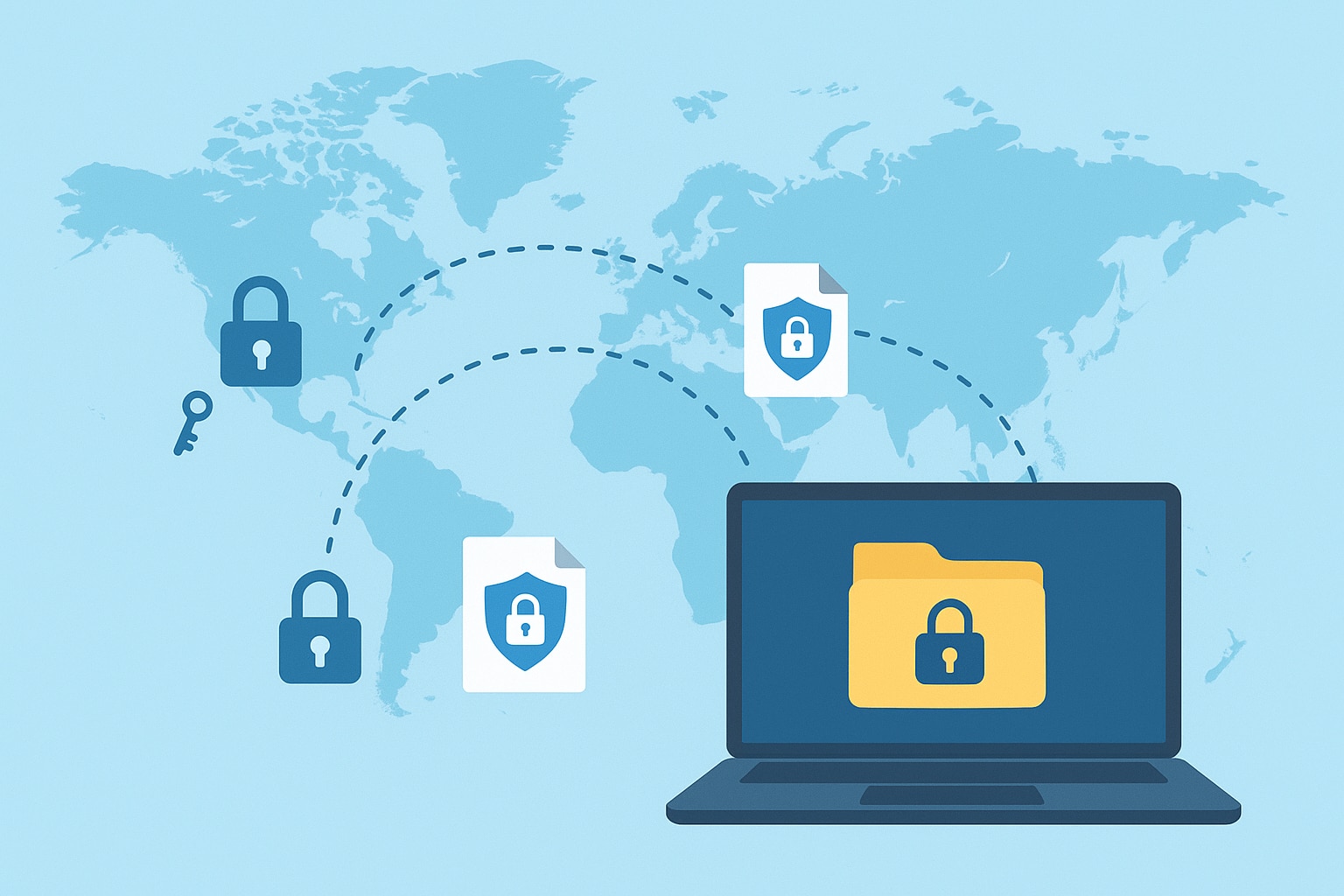Compliance with the Payment Card Industry Data Security Standard (PCI DSS) is essential for any organization that handles credit card data, and it extends far beyond databases and payment gateways. One area often overlooked is file transfer workflows, which can pose serious risks if not properly secured. Whether you’re transmitting reports, sharing files with vendors, or syncing systems internally, your file transfer solution must meet strict security standards to avoid noncompliance and protect cardholder data.
The PCI DSS provides a comprehensive set of requirements to safeguard sensitive data and prevent data breaches. A secure, self-hosted managed file transfer solution, such as SolarWinds® Serv-U® Managed File Transfer (Serv-U MFT), can help organizations meet these requirements with confidence.
Below are five specific PCI DSS requirements that Serv-U MFT helps address, along with a bonus section on automation and security measures that support compliance.
1. Encrypt Sensitive Data During Transmission With Secure File Transfer Protocols
PCI DSS Requirement 4.1: Use strong cryptography and security protocols to protect cardholder data during transmission over open, public networks.
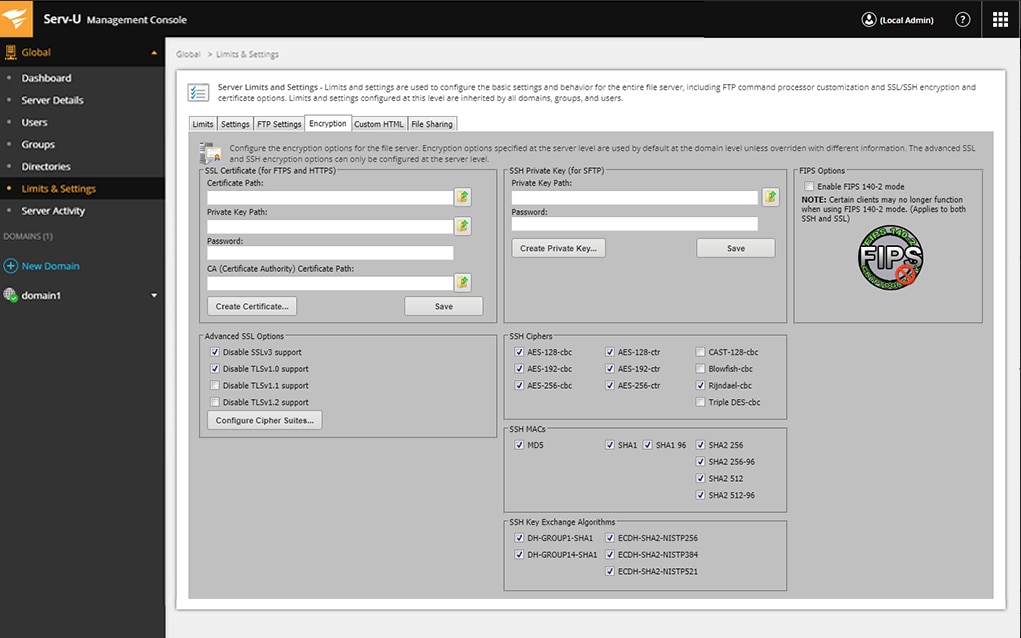
Serv-U MFT supports encrypted file transfer protocols including Secure File Transfer Protocol (SFTP), File Transfer Protocol Secure (FTPS), and Hypertext Transfer Protocol Secure (HTTPS). These secure protocols help protect credit card information from interception, tampering, or unauthorized access. You can enforce encryption globally or configure it per user, ensuring flexibility while maintaining a strong security posture.
2. Restrict Access to Cardholder Data by Business Need
PCI DSS Requirement 7.1: Limit access to system components and cardholder data to only those individuals whose jobs require such access.
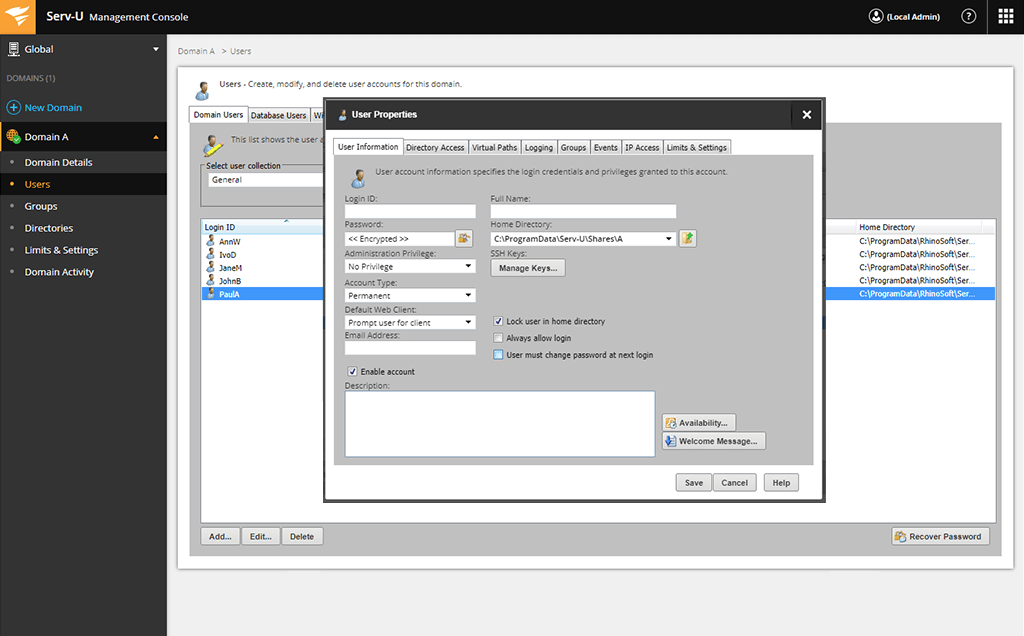
Serv-U MFT enables role-based access control, allowing admins to assign permissions at the user or group level. You can enforce IP restrictions, manage access through Active Directory or Lightweight Directory Access Protocol (LDAP), and ensure only authorized users can access sensitive files—supporting the principle of least privilege and aligning with PCI DSS expectations.
3. Track and Monitor All Access to Network Resources and Data
PCI DSS Requirements 10.2 -10.3: Implement automated audit trails for all system components.
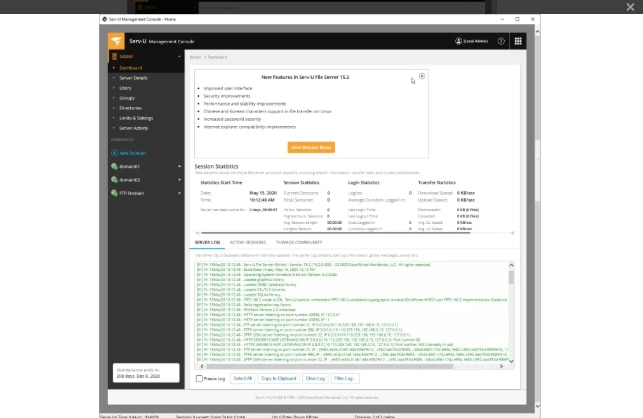
Serv-U MFT logs all file activity, including uploads, downloads, logins, and administrative changes. These audit logs include metadata such as timestamps, user IDs, IP addresses, and file paths. Logs can be exported or archived to support regulatory compliance, incident response, and forensic investigations.
4. Authenticate Access to System Components With Secure Methods
PCI DSS Requirement 8.1: Assign a unique ID to each user and require secure authentication.
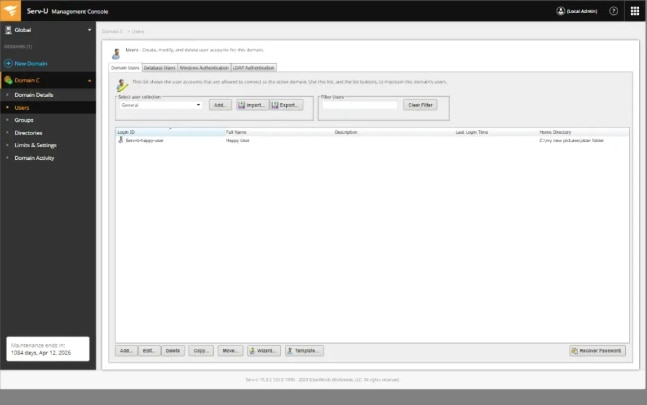
Serv-U MFT supports multi-factor authentication, SSH key authentication, and password complexity policies. Each user is assigned a unique ID, and session timeouts can be enforced to reduce risk. These authentication features help ensure only verified users can access file transfer services, and every action is traceable.
5. Secure System Configuration and Control
PCI DSS Requirements 2.2 and 6.5: Harden systems and protect sensitive applications from vulnerabilities.
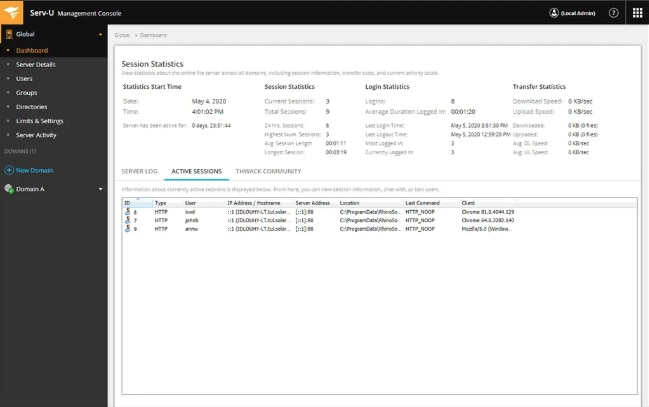
As a self-hosted file transfer solution, Serv-U MFT gives your team full control over system configuration, patching, and network exposure. You can disable unused protocols, configure file retention policies, and restrict administrative access – all through a centralized web-based console. With no reliance on third-party cloud services, you retain full authority over how stored cardholder data is handled.
Bonus: Automate Secure File Transfers and Strengthen Security Measures
Automation plays a key role in reducing human error and ensuring consistent compliance. Serv-U MFT supports automated file transfers using scripts and scheduled tasks, helping teams streamline operations while maintaining security.
Additionally, Serv-U MFT includes built-in security measures such as Advanced Encryption Standard (AES)-256 encryption, Transport Layer Security support, and configurable security policies. These features help organizations meet compliance requirements and reduce exposure to vulnerabilities.
Why Secure File Transfer Matters for PCI DSS Compliance
PCI DSS compliance is more than a checkbox – it’s a continuous effort to protect customer data at every stage. PCI-compliant file transfer workflows are a key part of that effort, especially when they involve data transmission between internal systems, vendors, or service providers.
Serv-U MFT offers a secure, flexible, and auditable platform that helps organizations meet PCI DSS requirements while reducing the risk of noncompliance and data breaches.
Ready to strengthen your PCI DSS compliance strategy with secure file transfer? Explore how SolarWinds Serv-U Managed File Transfer can support your compliant file transfer needs today.
